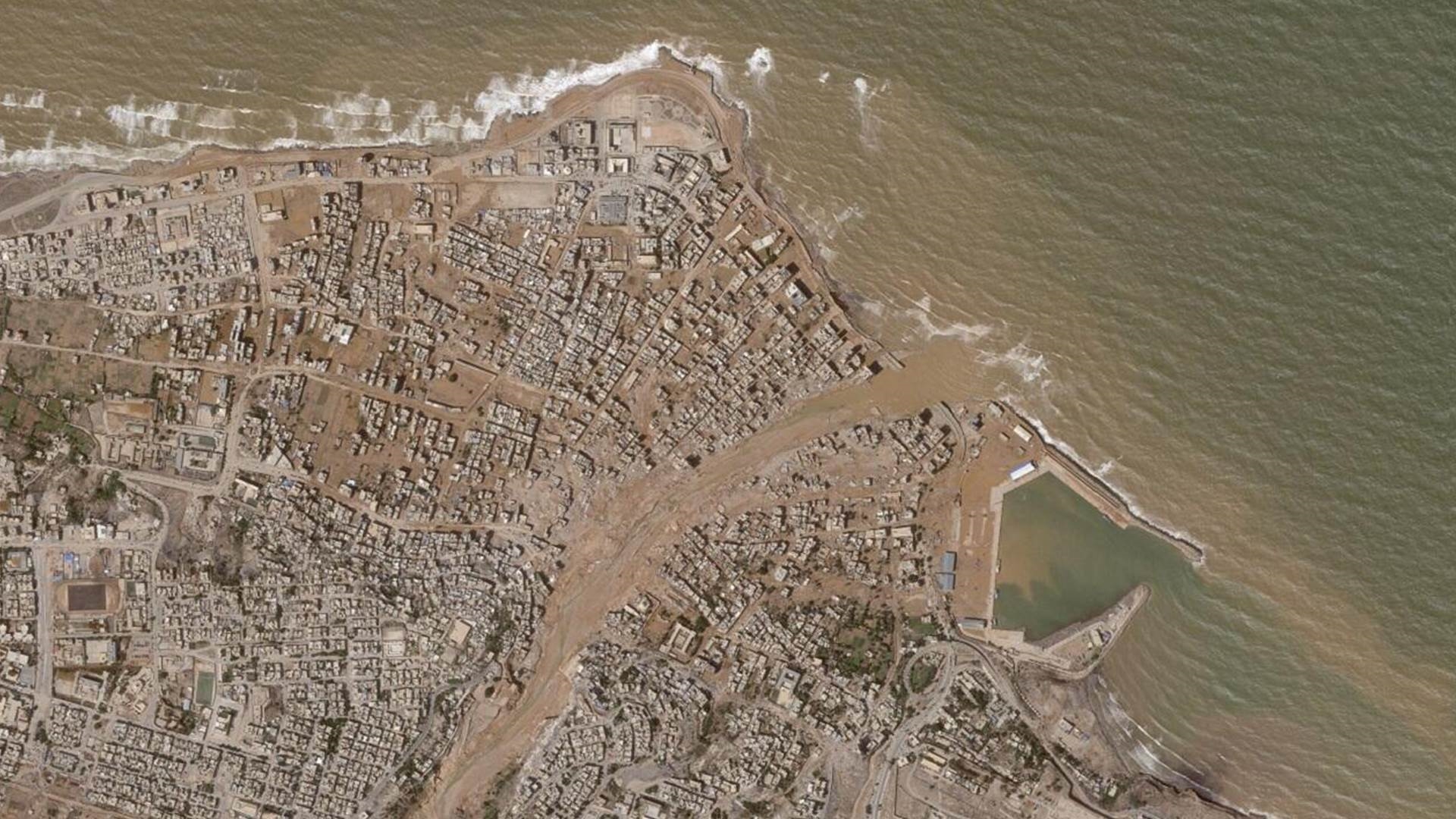Libya's Deluge of Despair: Climate Crisis and Corruption Amplify Tragedy
Wegdan Mohammed

The recent floods in Libya are considered one of the most violent floods witnessed worldwide in recent times. Storm "Daniel" struck the Libyan coast, causing the collapse of dams in the coastal city of Derna. This resulted in the disappearance of entire areas in Derna, estimated by some officials to be a quarter of the city or more.
Over 3,000 people lost their lives, and the number continues to rise, especially with thousands still missing, according to the Libyan government's health minister. The damage extends beyond human losses, causing significant economic losses.
Although floods are a natural phenomenon that occurs periodically in coastal areas, they have become more severe and frequent in recent years. Scientists attribute this trend to global warming. The European Union mission stated that Libya is one of the countries most affected by the consequences of climate change.
A research report from the European Commission mentioned that North African countries, including Libya, are among the most vulnerable to climate change issues on the African continent. It emphasized that the annual coastal flooding damages could increase 20 to 50 times due to climate change alone if appropriate measures for flood adaptation and global temperature control are not taken.
The warming of the Earth's atmosphere leads to rising temperatures, resulting in soil drying. Additionally, ocean and sea warming, such as the Mediterranean Sea, can impact rainfall intensity. However, excessive rainfall can lead to negative effects, such as floods due to the soil's inability to absorb the rainwater, causing the water to spread to farther areas than usual.
Furthermore, the increased temperature of the atmosphere and water bodies provides more energy to coastal storms and hurricanes. They can become more intense, with higher rates and increased frequency of floods.
Moreover, the melting of rivers and ice sheets globally raises global sea levels. Earth's oceans and seas are now about 20 centimeters higher compared to the levels in 1900, marking the highest rate of rise in a century over the past two thousand years.
Despite the scale of the disaster caused by the floods in Libya, it could have been mitigated with less damage if proper precautions had been taken before the incident. The New York Times mentioned that the floods in Derna clearly demonstrated how infrastructure development, in collaboration with climate and geography, can affect the extent of destruction, turning a storm into an unprecedented catastrophe.
Corruption also played a significant role in exacerbating the disaster. The Financial Times reported that when the storm "Daniel" approached the eastern coastal region of Libya across the Mediterranean Sea, local officials had ample warning of the storm's proximity to their shores. The storm had caused floods in Greece, Turkey, and Bulgaria days before, resulting in the deaths of more than ten people. However, no one in Libya was prepared for the magnitude of the disaster.











